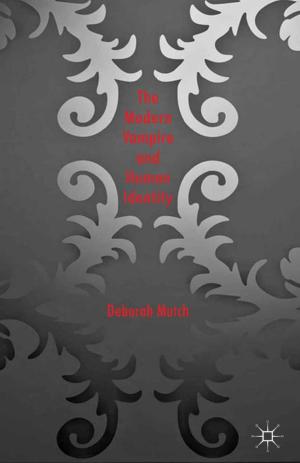Prisons and Punishment in Texas
Culture, History and Museological Representation
Nonfiction, Social & Cultural Studies, Social Science, Crimes & Criminals, Penology, Criminology| Author: | Hannah Thurston | ISBN: | 9781137533081 |
| Publisher: | Palgrave Macmillan UK | Publication: | June 20, 2016 |
| Imprint: | Palgrave Macmillan | Language: | English |
| Author: | Hannah Thurston |
| ISBN: | 9781137533081 |
| Publisher: | Palgrave Macmillan UK |
| Publication: | June 20, 2016 |
| Imprint: | Palgrave Macmillan |
| Language: | English |
This book explores the identity of Texas as a state with a large and severe penal system. It does so by assessing the narratives at work in Texas museums and tourist sites associated with prisons and punishment. In such cultural institutions, complex narratives are presented, which show celebratory stories of Texan toughness in the penal sphere, as well as poignant stories about the witnessing of executions, comical stories that normalize the harsher aspects of Texan punishment, and presentations about prison officers who have lost their lives in the war on crime. In analysing these representations, the book shows that Texan history plays an important role in the production of Texan self-identity, and that to understand the Texan commitment to harsh punishment we must be prepared to focus on Texan myths and memories.
Prisons and Punishment in Texas draws on diverse interdisciplinary work, including criminology, cultural studies about Southern values, as well as research on cultural memory and dark tourism. Museums are shown to be under-researched sites of criminological significance, which offer rich evidence through which penal imaginaries and the cultural role of punishment can be explored. The book will be of great interest to criminologists as well as scholars of sociology, cultural studies, museum studies and politics.
This book explores the identity of Texas as a state with a large and severe penal system. It does so by assessing the narratives at work in Texas museums and tourist sites associated with prisons and punishment. In such cultural institutions, complex narratives are presented, which show celebratory stories of Texan toughness in the penal sphere, as well as poignant stories about the witnessing of executions, comical stories that normalize the harsher aspects of Texan punishment, and presentations about prison officers who have lost their lives in the war on crime. In analysing these representations, the book shows that Texan history plays an important role in the production of Texan self-identity, and that to understand the Texan commitment to harsh punishment we must be prepared to focus on Texan myths and memories.
Prisons and Punishment in Texas draws on diverse interdisciplinary work, including criminology, cultural studies about Southern values, as well as research on cultural memory and dark tourism. Museums are shown to be under-researched sites of criminological significance, which offer rich evidence through which penal imaginaries and the cultural role of punishment can be explored. The book will be of great interest to criminologists as well as scholars of sociology, cultural studies, museum studies and politics.















